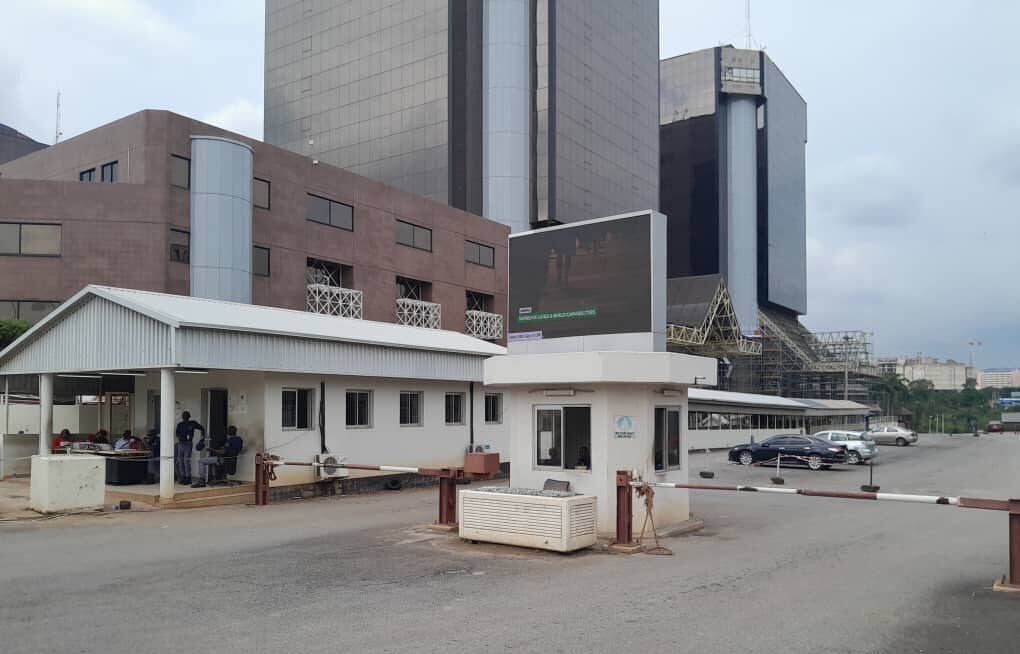As the January 1, 2026, date for the implementation of the new tax regime draws near, there are feelings of apprehension and questions on transparent administration of the tax laws to spur industrialization, writes Dike Onwuamaeze
The Chairman, Presidential Fiscal Policy and Tax Reforms Committee, Mr. Taiwo Oyedele, is convinced that the Nigeria’s four new tax laws have the answers to Nigeria’s constrained fiscal space and a tax system that is not conducive for sustained economic growth.
These tax laws, which will take effect from January 1, 2026, are the Nigeria Tax Act, the Nigeria Tax Administration Act, the Nigeria Revenue Service Act and the Joint Revenue Board Act.
Oyedele stated that Nigeria’s fiscal environment is currently characterised by low tax to GDP ratio, which stood at less than 10 per cent before 2024, high debt service to revenue ration of 97 per cent in 2022 and over reliance on oil revenue, etc.
He also noted that Nigeria’s tax policy is marked by inequity and unfair tax burden on tax payers, distortionary tax incentive system and uncompetitive tax regime for businesses.
According to him, the country’s tax laws are replete with myriad of multiple taxes and levies, complex and ambiguous tax rules as well as archaic and obsolete laws.
For him, these are challenges that new tax laws would address come January 1 by removing fiscal constraints, addressing structural issues, providing incentives for exports and reducing withholding tax rates.
He added that the new tax regime would grant higher exemption threshold for small businesses and promote business formalisation.
Oyedele stated that what should be expected from the tax reform laws are facilitation of economic growth, revenue mobilisation and shared prosperity for businesses, governments and households.
He, therefore, enthused that “we can build a prosperous Nigeria together.” He urged Nigerians to “get on board or you will miss the train,” adding that better days are ahead as “we are on track and the worst is behind us.”
The President of the Lagos Chamber of Commerce and Industry (LCCI), Mr. Gabriel Idahosa, acknowledged that The 2025 Tax Acts, with its sweeping provisions on digital taxation, unified filing systems, and incentives for green and export-oriented industries as bold legislations but stated that the key questions demanding attention are: “how can the newly introduced Investment and Export Incentive Schemes under the Act be administered transparently to spur industrialisation rather than create avenues for abuse?
“And how do we institutionalise efficient dispute-resolution processes via the Tax Appeal Tribunal, so that tax disagreements do not cripple enterprise?”
But as the January 1 date draws near there is fear and apprehension among businesses and individuals regarding the implications of the implementation of the new tax laws on their businesses and personal incomes.
This apprehension was articulated recently by the President of Chartered Institute of Directors Nigeria (CIoD), Mr. Adetunji A. Oyebanji. He said that the new tax laws are ambitious in their scope and laudable in their intent to simplify tax administration, enhance compliance and broaden the country’s tax base. These, according to him, are objectives that every responsible corporate entity and every patriotic Nigerian must support.
Yet, Oyebanji said that the most pressing concern of members of CIoD regarding the new tax regime bothers on the principle of fairness in application and in effect.
He said: “While the new laws rightly aim to increase revenue, some provisions, if not carefully managed, could place an undue burden on businesses already grappling with high operational costs, a volatile currency, and macroeconomic headwinds,” adding that “there is a lingering uncertainty that the new regime may not fully eliminate the problem of multiple taxation at the state and local government levels.”
He also noted that the sharp increase in the corporate Capital Gains Tax (CGT) rate from 10 per cent to 30 per cent is a significant concern whose timing and scale of adjustment could discourage capital intensive investment, corporate restructuring, and business expansion.
“At a time when companies are struggling with high costs and fragile margins, such a steep hike risks slowing growth and reducing the tax base over the medium term,” he said.
He also shined a spotlight on the burden of compliance, particularly on SMEs that may struggle to cope with the new reporting requirements and the cost of digital infrastructure.
Oyebanji warned that without adequate support, this could drive more firms into informality, undermining the very objective of broadening the tax net.
He, therefore, called on government to provide adequate support, training and a grace period for businesses to transition smoothly, adding that the process should not be more cumbersome than the tax itself.
Speaking in the same vein, the President of Nigeria British Chamber of Commerce (NBCC), Mr. Abimbola Olashore, said that the chamber recently reached out to its members to hear directly from them on their experience with the current tax reforms. Their feedback, according to him, provided an authentic snapshot of the realities faced by the private sector.
He said that first concern of members of the NBCC regarding the new tax laws bothered on clarity and communication. “Many businesses, especially SMEs, find the provisions of the reforms rather vague,” he said.
For example, the turnover threshold for small companies for income tax purposes under the Nigeria Tax Act is N50 million. However, a common misconception is that the threshold is N100 million. But the N100 million thresholds for small businesses as defined by the Nigeria Tax Administration Act only applied for VAT purposes.
The second concern is about the impact of the new tax regime on investment and cross-border transactions
Olashore said: “As a bilateral chamber, this is of particular concern to us. Investors, whether Nigerian or foreign, seek predictability. For example, the treatment of chargeable gains on indirect transfer of shares has generated mixed interpretations.
“Similarly, the removal of the foreign loan interest exemption is expected to have significant implications for Nigeria’s investment climate.
“First, it will inevitably raise the overall cost of borrowing, as lenders adjust their pricing to account for the full tax burden on interest payments.
“Second, by eliminating the incentives that once favoured longer-term financing, it is likely to discourage the inflow of long-term foreign debt, leaving borrowers more dependent on short-term, and often more expensive, facilities.
“Finally, the policy shift could undermine Nigeria’s competitiveness in attracting large-scale foreign direct investment, particularly in capital-intensive sectors such as infrastructure, energy, and manufacturing, where long-tenor loans are critical for project viability.
“When there is uncertainty about how reforms affect capital flows and investment structures, confidence is shaken, and opportunities are lost.”
He also pointed out that the transition period for te commencement of the new tax regime would be a source of challenges, especially on compliance costs.
“Although the government had promised a six-month lead time, the gazetted versions of the laws were only released in September, with implementation still set for 1 January 2026. This is not enough time for small businesses to align their accounting systems or understand their obligations.
“Many persons do not yet fully understand the new laws, what will change, or how they will be affected. Lack of awareness risks non-compliance through ignorance or mistrust.
“Also, new reporting requirements, TIN enforcement, and compliance with the VAT fiscalisation system etc. may impose extra costs (software upgrades, hiring compliance staff etc.) that particularly burden small businesses.”
Olashore declared that members of NBCC would like to see a tax regime that “widens the net to bring more participants into the system, rather than piling additional burdens on already compliant businesses.”
They also want to see fairness and protection for SMEs, which remained the backbone of Nigeria’s economy and must be allowed to thrive.
“And most importantly, predictable, transparent, and stable tax policies that give businesses the confidence to plan, to invest, and to grow,” Olashore said.
He stated that the chamber stands firmly for fairness, inclusivity, and balance in a tax system where revenue generation and economic growth are not opposing goals, but complementary objectives. Since a “truly reformed tax regime should not only mobilise revenue but also incentivise compliance, attract investment, and strengthen Nigeria’s economic foundations.


